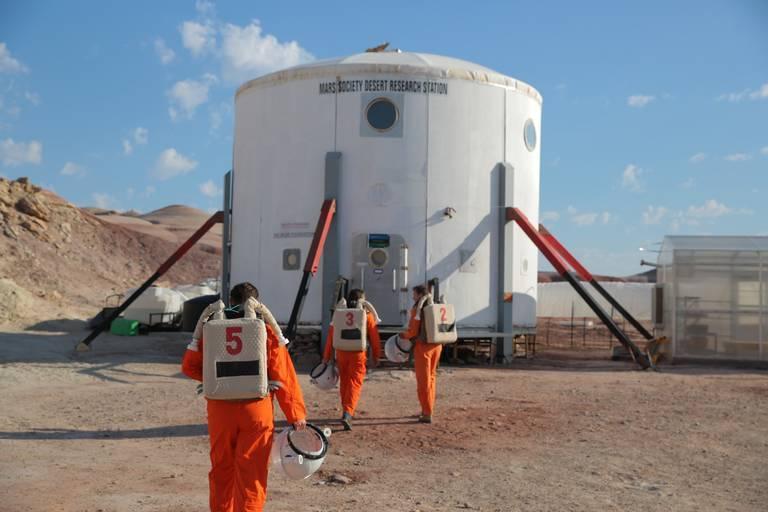
No matter how you feel about Ikea, you have to give this outlandish company credit. Over the years, the housewares and furniture giant out of Sweden has made a mint out of a kooky business model. Start with the furniture, which features long names that look like words you have gleaned from Ingmar Bergman’s Scenes of a Marriage. Then, make your customers walk a long, rambling endless path amongst all this furniture that is so exhausting, they will finally dine at the store’s cafeteria on Swedish meatballs. Maybe they will even pick up a jar of lingonberry syrup or salmon paste in a tube on the way out. The store’s shtick has been a rousing success, and as we have long documented here at TriplePundit, Ikea has made plenty of impressive sustainability and social responsibility decisions over the years.
And in the company’s latest odd-yet-brilliant move, Ikea recently announced that some of its designers were isolated at the Mars Desert Research Station in Utah.
According to a recent blog post, these designers joined a NASA space architect for a few days to explore how a future Mars habitat can inspire our future domestic lives. No, this is not some public relations stunt in case someone like Matt Damon in The Martian decides to make the red planet home. The reality is that according to the United Nations, the world will most likely have 41 mega-cities with 10 million or more residents. Life in these cities will be one confined to small spaces while resources, including clean air and water, will be at a premium. Therefore, if these Ikea designers are crammed in a tiny space, the logic follows that they could work together to find new ideas that can make our future homes far more comfortable and sustainable.
Ikea is onto something here. Even here in the U.S., where big homes have long been the ideal and the norm, there has been a slow shift in where and how Americans decide to live. As Dan Kopf of Quartz pointed out last month, the single-family home in the U.S. is on a slight, but noticeable, decline. Part of the change is that the construction industry lost a lot of capacity as many building contractors left the field during the financial crises of a decade ago.
But in many metropolitan areas, land is simply too expensive, or space is too constricted, to build the 1950s-era suburban tracts that lured families into the suburbs for decades after World War II. Meanwhile, there has been a return to the cities, where even brownfield sites are not large enough to host the spacious housing plots of yesteryear. Baby boomers, who helped fuel the move to the suburbs and exurbs, are also part of this trend as their kids leave for college and they decide to downsize with retirement on the horizon. Add the growing pressures on the global environment, and there are plenty of reasons why companies like Ikea need to explore how to stay viable in a far different future where the vast majority of us will have to live comfortably, and do so with fewer resources.
Ikea announced the experiment in this remote corner of Utah at last week’s “Democratic Design Days,” a company-wide event where various ideas and collaborations are explored. The event explored a range of options, from incorporating the sense of smell into design to an augmented reality partnership with Apple.
Image credit: IKEA

Leon Kaye has written for 3p since 2010 and become executive editor in 2018. His previous work includes writing for the Guardian as well as other online and print publications. In addition, he's worked in sales executive roles within technology and financial research companies, as well as for a public relations firm, for which he consulted with one of the globe’s leading sustainability initiatives. Currently living in Central California, he’s traveled to 70-plus countries and has lived and worked in South Korea, the United Arab Emirates and Uruguay.
Leon’s an alum of Fresno State, the University of Maryland, Baltimore County and the University of Southern California's Marshall Business School. He enjoys traveling abroad as well as exploring California’s Central Coast and the Sierra Nevadas.














